Writing report conclusions is sometimes a challenge for young writers. Many of them end their reports abruptly while others add details that are not necessary. Knowing how to end a report effectively depends on a few things.
First, young writers must understand the type of report they’re writing. Second, they must know what the purpose of the report is. And finally, they must be able to put themselves in the shoes of the reader to determine what the reader would need to know.
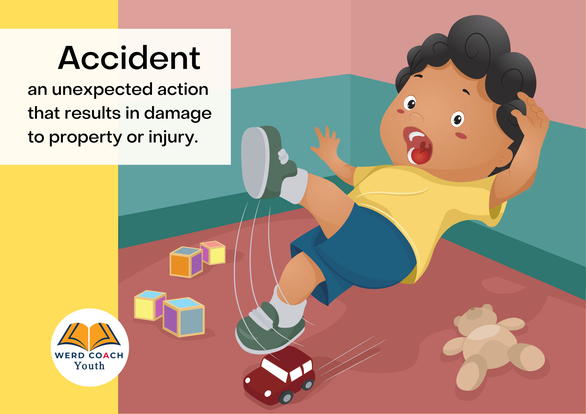
Accident: an unexpected action that results in damage to property or injury.
The purpose of this type of report is usually to document the various aspects of the accident to determine its cause and to identify what can be put in place to prevent it from recurring.
Conclusions of this type of report must include any systems put in place for similar accidents not to recur. Sometimes there may be punishment for carelessness, but these are likely to be less severe than incident punishments.
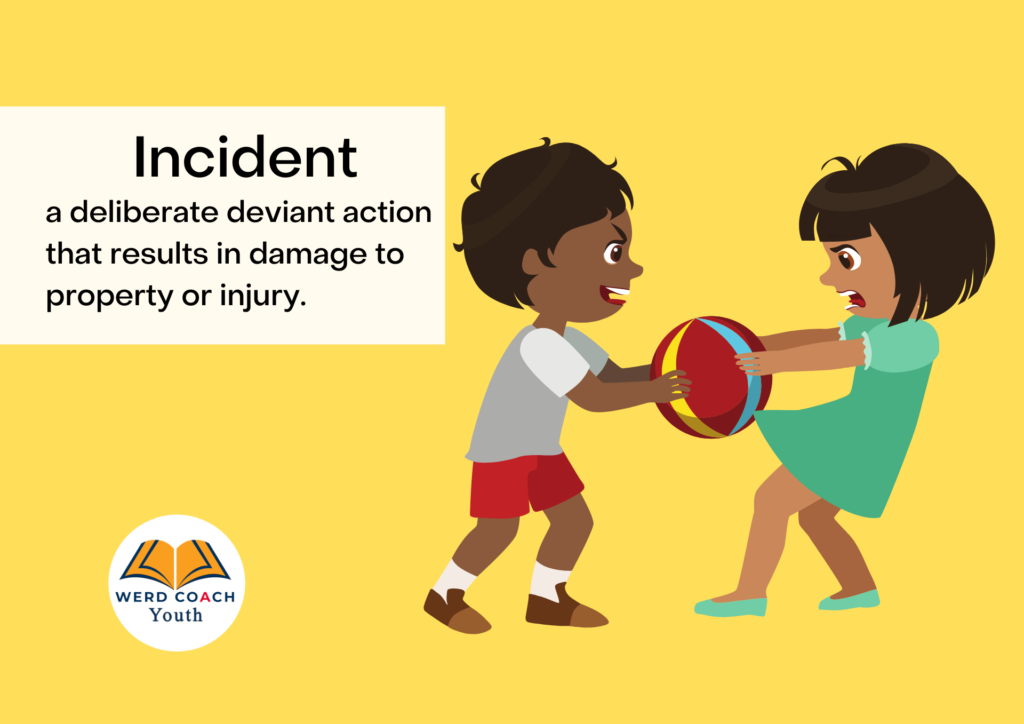
Incident: a deliberate deviant action that results in damage to property or injury.
The purpose of this type of report is usually to document the various aspects of the incident to determine who is responsible, and the level of their involvement.
Such reports must include punishments and consequences in the conclusion, including any systems put in place for similar incidents not to recur.
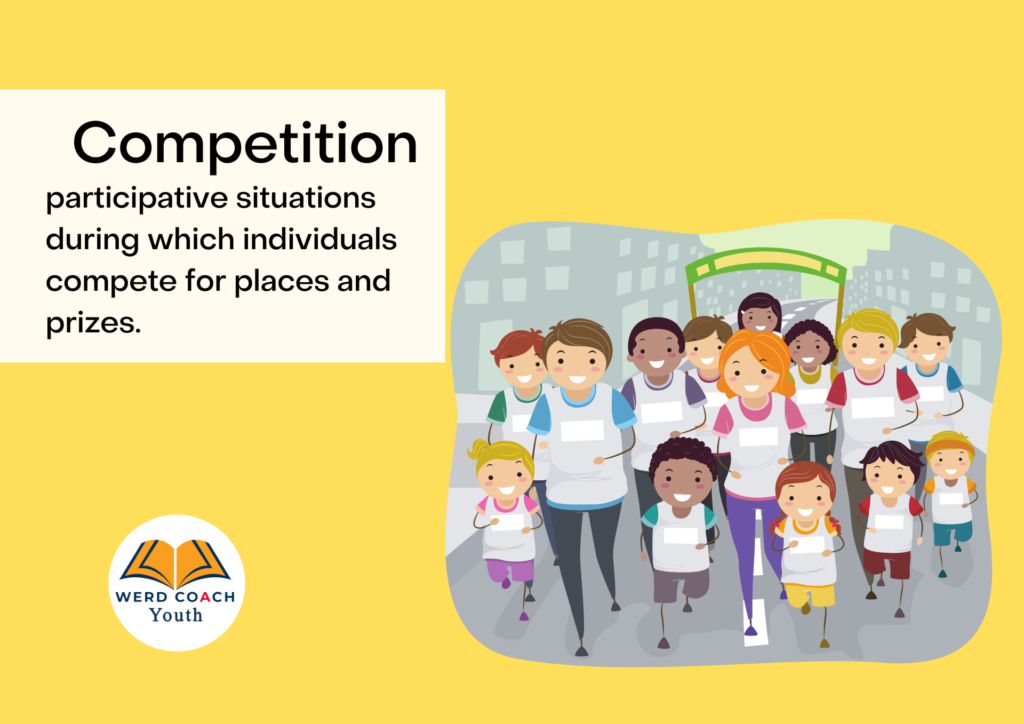
Competition: participative situations during which individuals compete for places and prizes.
The purpose of this type of report is often to document the activity from the perspective of the person writing the report, and to outline process (if everything went smoothly) and outcome (winners).
Conclusions for this type of report should include winners of the competition and prize giving activities.
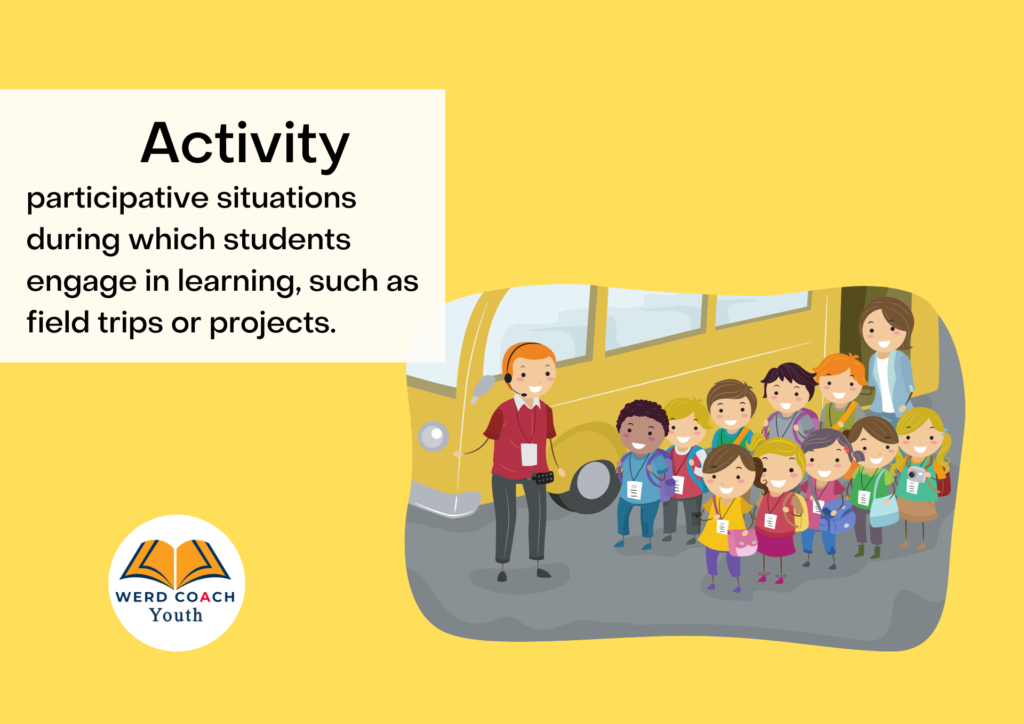
Activity: participative situations during which students engage in learning, such as field trips or projects.
The purpose of this type of report is often to document observations of students to determine if they are receiving the correct information and if the activity is educational.
Conclusions for such reports should include what learning took place. Usually, that is stated as reported speech of the teacher or other students. Outcomes, such as whether the activity will be repeated, are also often included.
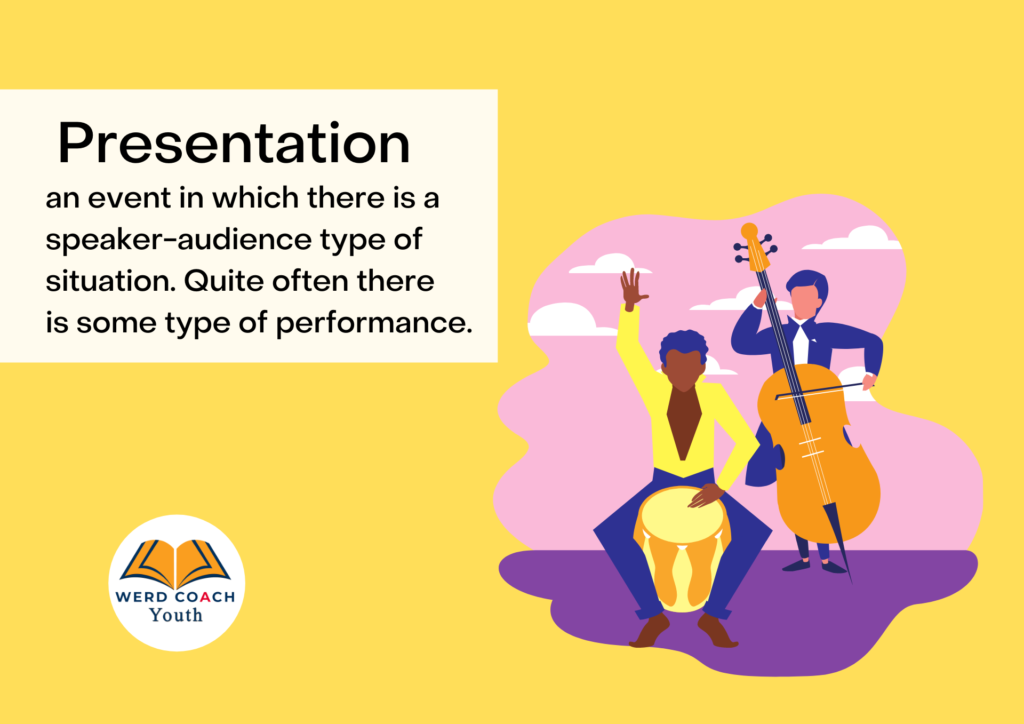
Presentation: an event in which there is a speaker-audience type of situation.
Quite often there is some type of performance.
Sometimes young writers will be in the audience observing the event unfold, sometimes young writers will be one of the speakers participating in the presentation.
The purpose of this type of report is often to document the event from the perspective of the young writer, quite often being written to individuals who were not present for the event.
Conclusions for this type of event usually include closing ceremonies and how successful the event was. These ideas can be written as reported speech of presenters or other attendees.

Regarding the impact of the audience, the main thing to consider is what the audience needs to know. In many cases, reports are to individuals who would be determining the outcomes or at least evaluating the outcomes. As such, careful attention should be taken in writing conclusions.
Also, consider the timeframe between the situation and the report. Was there sufficient time for any consequences to be implemented? If not, young writers could indicate that teachers or other participants indicated punishments and consequences or other outcomes would be coming.
In the end, completing a report in a satisfactory way depends on a careful assessment of the prompt, so young writers should be vigilant.

